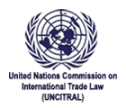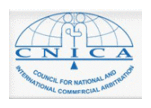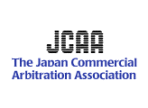News and Overviews
A Brief Overview of the China International Economic and Trade Arbitration Commission (CIETAC)

Formerly known as the Foreign Trade Arbitration Commission, the China International Economic and Trade Commission (CIETAC) was set up in April 1956.
With its headquarters in Beijing, CIETAC also has sub-commissions in Shenzhen, Shanghai, Tianjin and Chongqing, respectively known as the CIETAC South China Sub-Commission, Shanghai Sub-Commission, Tianjin International Economic Financial Arbitration Centre and Southwest Sub-Commission.
According to the information on the CIETAC official Internet site, CIETAC and its sub-commissions constitute a single arbitration institute, as stipulated in the CIETAC Articles of Association.
In 2000, the CIETAC Domain Name Dispute Resolution Centre was established to provide dispute resolution services with regard to .com, .org, .net, .cn and other top-level domain names.
In 2009, CIETAC’s Online Arbitration Rules came into effect to facilitate the resolution of online disputes, such as e-commerce ones.
In 2011, CIETAC established its Investment Dispute Resolution Centre to handle investment disputes between private investors and host states where they have agreed on CIETAC arbitration.
CIETAC Statistics
Throughout the past 50 years, CIETAC has administered nearly 20,000 arbitration cases, involving parties from more than 70 countries and regions outside the Chinese mainland, and its awards have been recognized and enforced in more than 60 countries and regions. Since 1990 CIETAC’s caseload has been one of the heaviest among the world’s major arbitration institutions. In recent years, on average, CIETAC has handled as many as 1,300 cases annually.
Most CIETAC arbitrations can be completed within six months after the constitution of the arbitral tribunal. It generally takes between one to three days to conduct an oral hearing.
According to CIETAC statistics on its official website, approximately 90% of CIETAC’s arbitral awards are voluntarily honoured by the parties; fewer than one in a thousand of CIETAC’s awards have been annulled or their enforcement rejected.
CIETAC Publications
CIETAC’s extensive publication list of legal books and periodicals, such as the Compilation of Arbitral Awards, Selection of Arbitral Awards, Arbitration and Law and Arbitration and Jurisdiction, demonstrates its role as a pioneering flag-bearer in the theory and practice of arbitration in China.
It is also noteworthy that CIETAC includes a special-purpose body (The Arbitrator Qualification Review Committee), which is responsible for the verification of arbitrator qualifications and their performance of the respective duties. The Committee makes suggestions as regards the prolongation of arbitrator powers in cases where his or her qualifications comply with the Arbitration Law of China and the CIETAC Arbitration Rules.
Features of the CIETAC Arbitration Rules
CIETAC generally conducts arbitration in accordance with the CIETAC Arbitration Rules, effective as of May 01, 2012 (the latest revision). If the parties agree to use other arbitration rules or to modify CIETAC Arbitration Rules this agreement between the parties shall prevail unless it is non-enforceable or runs contrary to mandatory law as applicable at the place of arbitration.
Art. 6 para. 1 of the Rules would appear to be of special interest for practitioners. Under this rule it is CIETAC – and not the arbitral tribunal for the specific case – that has the power to determine the existence and validity of an arbitration agreement. CIETAC may, where necessary, delegate such power to the arbitral tribunal. This provision seems to significantly differ from similar provisions of rules adopted by most arbitration centres which refer the issue of existence and validity of an arbitration agreement to the competence of the arbitral tribunal for the specific case (the so-called “competence-competence” principle).
We should also note CIETAC Arbitration Rules Article 21, Paragraph 1, according to which a party may apply directly to CIETAC for conservatory measures in order to ensure the enforcement of the prospective arbitral award as well as to protect evidence. Having received such an application, CIETAC forwards it to a competent court at the Defendant’s location or at the location of the Defendant’s property or evidence. This does not prejudice the right of a party to apply for interim measures to the arbitral tribunal itself (Article 21 Paragraph 2).
Similarly to the ICC Arbitration Rules Article 27, under Article 49 of the CIETAC Rules the arbitral tribunal submits its draft award to CIETAC for scrutiny before signing it. Without affecting the arbitrators’ freedom in granting an award CIETAC may, however, draw the arbitrator’s attention to certain aspects of such an award.
Control over Arbitrators
 It is important to take into account that CIETAC governs in thorough detail all issues relating to the performance of arbitrators of their respective functions. Thus, CIETAC has adopted the Code of Conduct for Arbitrators (for example, pursuant to Article 14 of the Code arbitrators have an obligation to attend seminars organized for them by CIETAC) and the very detailed Rules for Evaluating the Behaviour of Arbitrators (hereinafter “Rules for Evaluating”), effective as of March 1, 2009 (Article 16).
It is important to take into account that CIETAC governs in thorough detail all issues relating to the performance of arbitrators of their respective functions. Thus, CIETAC has adopted the Code of Conduct for Arbitrators (for example, pursuant to Article 14 of the Code arbitrators have an obligation to attend seminars organized for them by CIETAC) and the very detailed Rules for Evaluating the Behaviour of Arbitrators (hereinafter “Rules for Evaluating”), effective as of March 1, 2009 (Article 16). Article 8 lists the circumstances in which an arbitrator should make a request for withdrawal on his or her own initiative. The existence of such circumstances also allows the parties and the other members of the tribunal to submit a petition for the challenge of the arbitrator to the Chairman of the Arbitration Commission. The Chairman may also make such a decision on his or her own initiative. Such circumstances include the following:
- The arbitrator is a party to the case or is a close relative of a party or its agent;
- The arbitrator has a personal stake in the case;
- The arbitrator has met with a party or its agent in private or has accepted a gift or invitation from the latter;
- The arbitrator has other ties with a party or its agent that may affect the impartiality of the arbitration.
For the purpose of Article 8, “other ties” are understood as follows:
- The arbitrator has previously given advice on the same case to a party or its agent;
- The arbitrator is currently a colleague of a party or its agent or used to be a colleague of the latter within the past two years;
- The arbitrator is currently the legal adviser or agent of a party or has acted as the legal adviser or agent of a party within the past two years;
- The arbitrator has recommended or introduced an agent to a party;
- The arbitrator has served as a witness, appraiser, forensic examiner, defense lawyer or litigation/arbitration agent in the same case or in a related case;
- Other circumstances exist that might affect the impartiality of the arbitration.
Article 9 of the Rules for Evaluating governs cases when the parties and other arbitrators may submit a petition to the Chairman of the Arbitration Commission to replace the arbitrator. Similarly to Article 8, Article 9 vests the Chairman of the Arbitration Commission with the right to make a decision on the replacement of the arbitrator without any petitions from the parties (ex officio). Such circumstances include the following:
- The arbitrator lacks the necessary knowledge and ability to handle a case;
- The arbitrator has failed to fulfill his or her due diligence obligations;
- The arbitrator has failed to conduct arbitral proceedings in accordance with the Arbitration Rules;
- Other circumstances exist that demonstrate the arbitrator’s incompetence or inappropriateness to perform his or her duties.
As is evident, at least three of the above four circumstances require evaluation and provide considerable discretion to the Chairman of the Arbitration Commission on the issue of the replacement.
Perhaps one of the most interesting articles of the Rules for Evaluating is Article 10, which governs situations whereby the Arbitration Commission may issue a “warning” to the arbitrator. Pursuant to this Article, if for example, an arbitrator commits a violation of the Code of Conduct for Arbitrators and such a violation may damage the image of the Commission but does not warrant the withdrawal, replacement or dismissal of the arbitrator, the Commission shall issue a warning to the arbitrator. Circumstances whereby an arbitrator shall receive a warning include, but are not limited to, the following:
- The arbitrator prevents the timely resolution of the case under false excuses;
- The arbitrator receives phone calls, text-messages, leaves the room casually, or dresses inappropriately during an oral hearing;
- The arbitrator displays bias during an oral hearing and in the arbitral proceedings, including either directly or covertly assisting one party by examining evidence, making arguments, raising claims or asking obviously leading questions for that party;
- The arbitrator fails to participate in the deliberations or investigations of the arbitral tribunal or is late for an oral hearing without justified reasons;
- The arbitrator changes the time for an oral hearing after it is confirmed, or fails to reserve enough time for an oral hearing, resulting in the rescheduling of an additional hearing;
- The arbitrator makes inappropriate comments on a case to the outside, without prior approval of the Arbitration Commission.
Finally, Article 11 of the Rules for Evaluating is as follows:
If any of the following circumstances exist during an arbitrator’s term of service, the Arbitration Commission has the authority to dismiss the arbitrator on the grounds that:
- The arbitrator has been convicted of a crime or received serious administrative punishment for a violation of the law;
- The arbitrator deliberately conceals facts or circumstances that would have resulted in his or her withdrawal once disclosed;
- The arbitrator fails to appear in an oral hearing without justified reasons;
- The arbitrator fails twice to participate in the deliberations or investigations of the arbitral tribunal or is late for an oral hearing twice in a year;
- The arbitrator changes the time for oral hearings twice in a year, or fails to reserve enough time for oral hearings twice in a year, resulting in the rescheduling of additional hearings;
- The arbitrator fails to remain impartial during the arbitral proceedings;
- The arbitrator bears primary responsibility for delays in the arbitral proceedings;
- The arbitrator reveals his or her own opinion or the deliberations of the arbitral tribunal to a party;
- The arbitrator fails to perform his or her duties in a diligent and cautious manner, fails to carefully read the case materials or become familiar with the case, and is seriously irresponsible/liable;
- The arbitrator engages in favouritism and commits irregularities, or perverts the law in rendering an arbitral award;
- The arbitrator meets a party in private, or accepts an invitation or gift or other benefits from a party;
- The arbitrator inquires about the details of a case, entertains or gives gifts, or provides advantages or benefits to those involved in the case on behalf of a party;
- The arbitrator insists in supporting one party’s claims and arguments and/or opposing the other party’s claims and arguments, without being capable of explaining the reasons behind this;
- The arbitrator contacts another arbitrator of the same case in private to artificially create a majority opinion in disregard of the facts and law, for the improper interests of a party;
- The arbitrator fails to participate in the training for arbitrators in accordance with the Rules for Arbitrator Training;
- The arbitrator has received two warnings in one term of service;
- The arbitrator commits other violations of the Code of Conduct for Arbitrators that make it inappropriate for the arbitrator to continue his or her service.
The official web site of the CIETAC also contains an English translation of the key statutory legislative acts in the sphere of arbitration, such as the Arbitration Act of 1995 and clarification of this law by the Supreme Court of China.
26.10.2012
Specialists of Genuine Arbitration Service, Ltd. represent clients’ interests in arbitration administered by the Commission and will be happy to provide you with any possible assistance in arbitral proceedings governed by the arbitration rules of the CIETAC.







1.jpg)





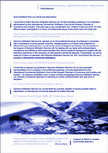
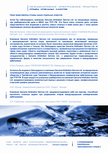







.jpg)
1.jpg)

.jpg)

1.png)

1.jpg)








